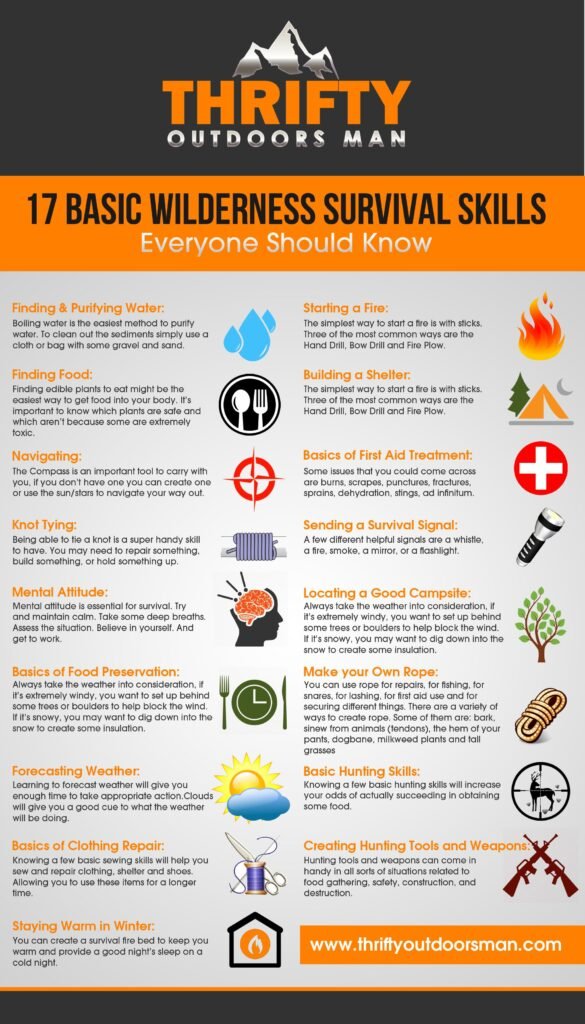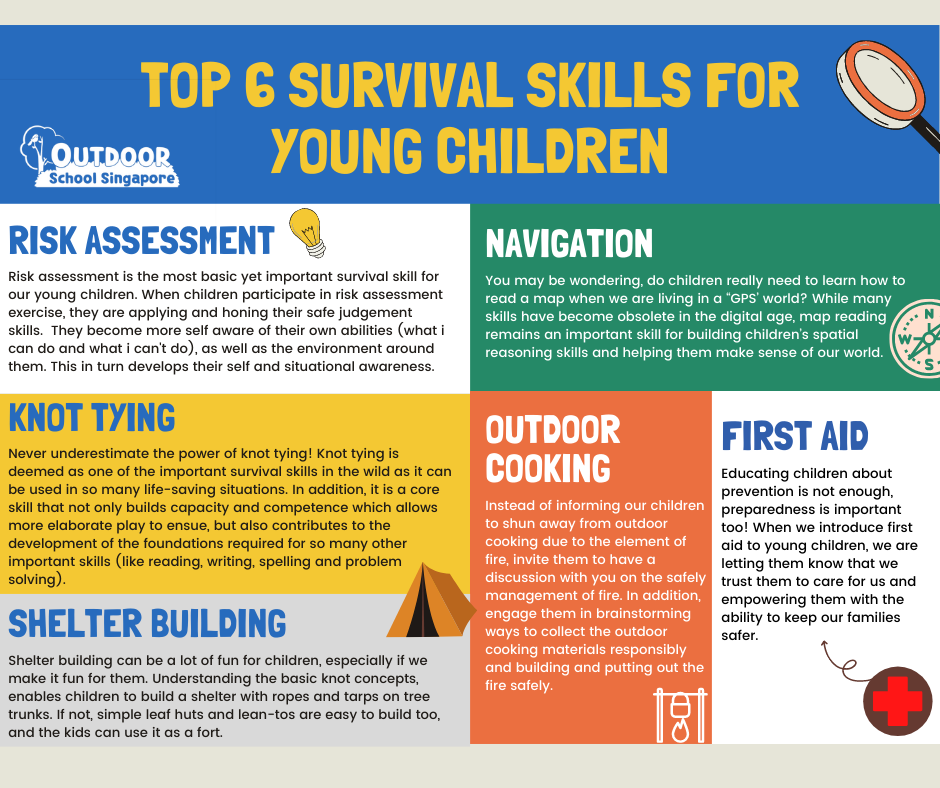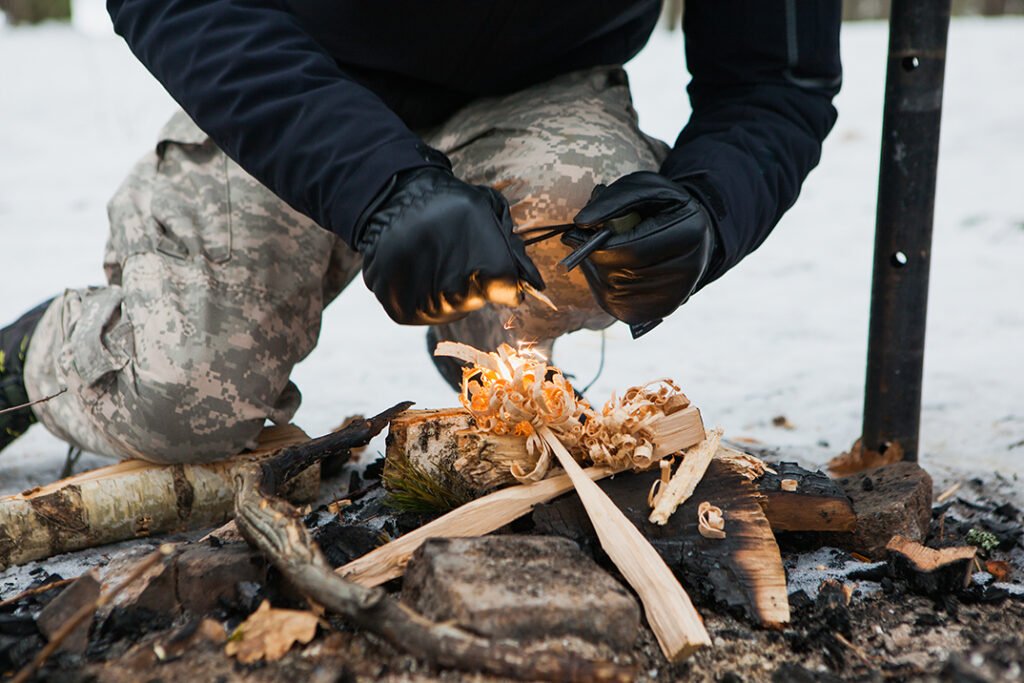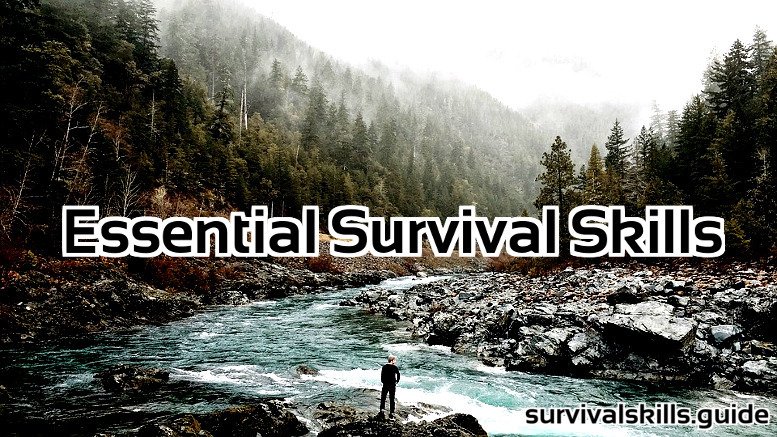So, you’re curious about what skills every survivalist should know, huh? Well, let me tell you, it’s a pretty fascinating topic. Survivalists are all about being prepared for whatever nature throws their way, and there are definitely some key skills they need to have under their belt. Whether it’s starting a fire without matches, finding clean water in the wild, or building a shelter from scratch, survivalists know how to handle themselves in the toughest of situations. So if you’re wondering what skills you should brush up on to become a true survivalist, keep reading because this article is going to cover all the essentials.
Now, I don’t want to spoil all the fun for you, but let’s just say that in this article, you’re going to learn some seriously cool skills. We’re talking about everything from navigation techniques to foraging for food in the wilderness. You’ll discover how to make basic tools, purify water, and even create makeshift weapons for self-defense. Whether you’re an experienced survivalist looking to expand your knowledge or just a curious adventurer, this article has got you covered. So get ready to take your survival skills to the next level and become the ultimate outdoor expert.

This image is property of cdn2.bigcommerce.com.
Introduction
Being prepared for any situation is the key to survival, especially in the wilderness. Whether you find yourself in a remote area due to a hiking trip gone wrong or a natural disaster, it’s crucial to have the necessary skills to survive. In this article, we will explore the essential skills every survivalist should know, including finding and purifying water, building shelter, starting a fire, navigating without GPS, foraging for food, basic medical skills, creating and using tools, self-defense, and security. By mastering these skills, you can increase your chances of staying alive and well in challenging situations.
Finding and Purifying Water
Methods of Finding Water
One of the first tasks in any survival situation is finding a source of clean water. Without water, dehydration can set in quickly, leading to serious health problems. To find water, you can look for signs of water sources such as vegetation, animal trails, and bird activity. Digging in dry riverbeds or collecting morning dew are additional ways to obtain water.
Water Purification Techniques
Once you’ve found a water source, it’s essential to purify it to ensure it’s safe for consumption. Boiling water is the most reliable method as it kills bacteria and parasites. Alternatively, you can use water purification tablets or filters specifically designed for outdoor use. Learning how to purify water ensures that you have a constant supply of safe drinking water in the wilderness.
Building Shelter
Choosing the Right Location
Finding or constructing a shelter is vital for protecting yourself from the elements and wildlife. When choosing a location, look for a spot that is elevated, away from potential hazards such as falling rocks or flooding, and offers natural protection like trees or rocks. Pay attention to wind direction and prevailing weather patterns to position your shelter accordingly.
Constructing Different Types of Shelters
Knowing how to construct different types of shelters allows you to adapt to different environments and weather conditions. Some common shelter options include lean-tos, debris huts, and tarp tents. Understanding which materials to use and how to assemble them is crucial for creating a sturdy and efficient shelter.
Starting Fire
Understanding Fire Basics
Fire provides light, warmth, and the ability to cook food in the wilderness. Knowing the basics of fire is essential for survival. You should understand how fire spreads, the importance of tinder, kindling, and fuel, and how to safely extinguish a fire when necessary.
Fire Starting Methods
While matches and lighters are convenient, they may not always be available in a survival situation. It’s crucial to know alternative fire-starting methods, such as using a fire starter kit, flint and steel, or friction-based methods like the bow drill or hand drill. Practicing these techniques before an emergency can make all the difference in starting a fire when you need it most.

This image is property of i.pinimg.com.
Navigating without GPS
Using Natural Navigation Methods
In the wilderness, technology like GPS may not always be accessible. It’s important to learn how to navigate using natural methods such as observing the position of the sun, stars, and moon, as well as identifying landmarks and using a compass. These skills will enable you to navigate and orient yourself in unfamiliar territory.
Map and Compass Skills
Having a basic understanding of map reading and compass use is invaluable for wilderness survival. Learn how to read topographic maps, understand contour lines, and navigate using a compass to plan routes and find your way back to safety.
Foraging for Food
Identifying Edible Plants and Insects
Finding food in the wild can be challenging, but it’s crucial for survival. Learning how to identify edible plants and insects in your surroundings is a valuable skill. Familiarize yourself with common edible plants, berries, nuts, and insects in your area to supplement your food supply.
Hunting and Trapping Techniques
In addition to foraging, understanding hunting and trapping techniques can provide another source of food. Learning the basics of setting traps, constructing snares, and using basic hunting tools like slingshots or spears can increase your chances of catching small game for sustenance.

This image is property of outdoor-school-production-static-content.s3.ap-southeast-1.amazonaws.com.
First Aid and Basic Medical Skills
Common Medical Emergencies in the Wild
Knowing how to handle common medical emergencies can be life-saving when medical professionals are not readily available. Learn how to treat wounds, prevent infection, manage fractures and sprains, and recognize symptoms of dehydration, hypothermia, and heatstroke.
Bandaging and Wound Treatment
Properly bandaging wounds and applying first aid techniques are crucial skills for any survivalist. Learning how to clean and dress wounds, apply splints, and use basic medical supplies can prevent infections and reduce the risk of complications.
Creating and Using Tools
Improvising Tools from Natural Resources
When stranded or in a survival situation, you may not have access to conventional tools. Improvising tools from natural resources, such as making a spear with a sharpened stick or constructing a cutting tool from a sharp rock, can be essential for various tasks like hunting, shelter-building, and gathering firewood.
Basic Knots and Rope Skills
Knowing essential knots and rope skills can help you secure shelters, construct traps, or build makeshift tools. Practice tying basic knots such as the square knot, clove hitch, and taut-line hitch to enhance your ability to work with ropes effectively.

This image is property of cdn.hiconsumption.com.
Self-Defense and Security
Awareness and Avoidance
Staying alert and aware of your surroundings is critical for personal safety in any survival situation. Avoiding confrontations, understanding potential threats, and taking precautions can minimize risks. Learn how to recognize signs of danger and how to navigate with caution to reduce the risk of encountering dangerous wildlife or hostile individuals.
Basic Self-Defense Techniques
While the goal is to avoid conflict whenever possible, knowing basic self-defense techniques can provide an added layer of protection. Learn simple moves to disarm, escape, or incapacitate an attacker, focusing on strikes to vulnerable areas like the eyes, throat, or groin.
Conclusion
In conclusion, being prepared with essential survival skills is paramount for anyone venturing into the wilderness. From finding and purifying water to building shelter, starting a fire, navigating without GPS, foraging for food, basic medical skills, creating and using tools, self-defense, and security, each skill plays a crucial role in increasing your chances of survival. By mastering these skills, you can navigate through various challenges and ensure your safety in the most adverse situations. Remember, preparation and practice are key to becoming a proficient survivalist.

This image is property of survivalskills.guide.
